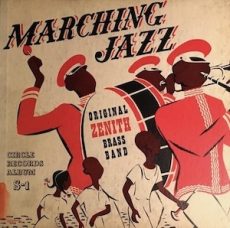
Daily Dose Of Jazz…
Isidore Jean “John” Barbarin was born September 24, 1871 in New Orleans, Louisiana. He began learning cornet at age 14, then played in various New Orleans brass bands, like the Onward Brass Band, the Excelsior Brass Band, and Papa Celestin’s Tuxedo Brass Band.
He did not make it on to record until 1945, when he recorded with Bunk Johnson; in 1946 he recorded with the Original Zenith Brass Band. He was a mainstay of the New Orleans jazz scene in the decades around the turn of the 20th century.
Cornet and alto horn player Isidore Barbarin died on June 12, 1960 in New Orleans.
More Posts: alto horn,cornet,history,instrumental,jazz,music
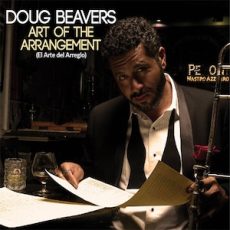
Daily Dose Of Jazz…
Doug Beavers was born September 22, 1976 in Bellflower, California. He received a BA in music from California State University, East Bay, an MA in composition from the Manhattan School of Music. He is the founder of the music production company and record label, Circle 9.
As a performer Doug has worked with Eddie Palmieri, Spanish Harlem Orchestra, Mingus Big Band, Christian McBride, Paul Simon, and others. He also served as an adjunct professor at Los Medanos College and music faculty of Jazz Trombone at California State University, East Bay.
His most recent album recording,Sol, was released in 2020. In 2021, he received a New Jazz Works grant from Chamber Music America. Trombonist, arranger, composer and producer Doug Beavers, a Grammy Award-winning musician, is currently an adjunct faculty member at the College of New Jersey.
More Posts: arranger,bandleader,composer,history,instrumental,jazz,music,producer,trombone
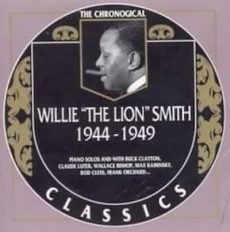
Daily Dose Of Jazz…
Frank Orchard was born on September 21, 1914 in Chicago, Illinois. He studied at Juilliard from 1932-33 and performed for a year with Stanley Melba’s band, but then worked outside of music altogether, mostly as a salesman until 1941.
Orchard became a part of the New York Dixieland scene in the 1940s, working with Jimmy McPartland, Jimmy Dorsey, Louis Armstrong, Bobby Hackett, Max Kaminsky, Wingy Manone, Joe Marsala and the Eddie Condon gang.
The mid-1950s saw Frank’s move to Dayton, Ohio and eventually to St. Louis, Missouri and still playing trombone although out of the spotlight. He never led his own record date and returned to New York in the 1960s. He worked regularly at Jimmy Ryan’s from 1970-71 and with Billy Butterfield in 1979.
Trombonist, violinist, banjoist and tubist Frank Orchard, who also played in the Willie “The Lion” Smith band with Jack Lesberg, Mac McGrath, Max Kaminsky, Rod Cless, died December 27, 1983 in Manhattan, New York City, New York.
More Posts: banjo,history,instrumental,jazz,music,trombone,tuba,violin
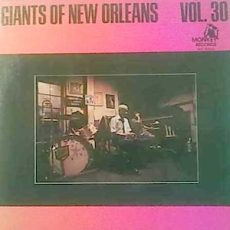
Daily Dose Of Jazz…
Jerome Don Pasquall was born on September 20, 1902 in Fulton, Kentucky, and grew up in St. Louis, Missouri. As a child, he played the mellophone in brass bands. He served in the United States Army in 1918 in the 10th Cavalry Band, and picked up clarinet during this time.
Following his discharge, Pasquall played with Ed Allen in 1919 and then found work on riverboats playing with Charlie Creath and Fate Marable. He moved to Chicago, Illinois to study at the American Conservatory, and played with Doc Cook’s Dreamland Orchestra as a tenor saxophonist.
Departing for Boston, Massachusetts he attended the New England Conservatory of Music. In 1927 and 1928, he played with Fletcher Henderson. Following this he returned to Chicago and led his own ensemble, in addition to playing with Freddie Keppard, Dave Peyton, Jabbo Smith, Tiny Parham, and Fess Williams.
He toured Europe with the 1934 Blackbirds, Eddie South, Henderson again in 1936, and Noble Sissle from 1937 throught World War II in 1944. After the mid-1940s, he did freelance work in New York City with Tony Ambrose among others, and gradually receded from active performance.
Clarinetist, alto saxophonist, mellophonist Jerome Don Pasquall, who never led his own recording session, dies on October 18, 1971 in New York City, New York.
More Posts: bandleader,clarinet,history,instrumental,jazz,mellophone,music,saxophone
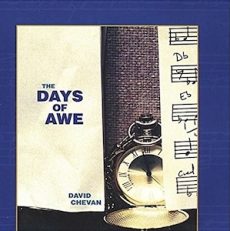
Daily Dose Of Jazz…
David Chevan was born on September 19, 1960 in Philadelphia, Pennsylvania and grew up in Amherst, Massachusetts. He was musically active from an early age and led synagogue services from the age of 10. His double-bass education has mostly been self taught, but credits bassist, Lisle Atkinson for showing me the pathway to self-education.
As a composer, Chevan focused on works for improvisors, writing for a wide range of artists and ensembles, including collaborations with dance and film. He performs regularly in a duo with pianist Warren Byrd and co-leads The Afro-Semitic Experience.
As an educator he is an Associate Professor of Music at Southern Connecticut State University in New Haven. David is currently studying the music of bassist Slam Stewart and is a board trustee of the Louis Armstrong Educational Foundation.
He has performed and recorded with Ali Ryerson, Joe Beck, Jaki Byard, Harold Danko, Ellery Eskelin, Giacomo Gates, Frank London, Andrea Parkins, and Cookie Segelstein. Bassist David Chevan tours when time permits in his teaching schedule.
More Posts: baass,bandleader,educator,history,instrumental,jazz,music


